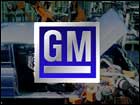
NEW YORK (CNN/Money) -
General Motors Corp., which is expected to report sharply improved second-quarter results Tuesday, has been on a roll so far in 2002, but analysts are starting to put a brake on their enthusiasm.
The consensus estimate for earnings at the world's largest automaker is $2.42 a share, according to analysts surveyed by earnings tracker First Call, with estimates ranging from $2.25 to $2.52; the latter amount would be twice the $1.26 a share GM earned from operations a year earlier.
Those estimates have climbed by more than half since a $1.59 a share forecast the day before GM raised its guidance while releasing first-quarter results. But within the last week estimates have slipped from a consensus $2.44 a share, and three analysts issued cautionary notes about the company's outlook.

Shares of GM (GM: Research, Estimates), a component of the Dow Jones industrial average, lost about 1 percent in trading Monday.
After years of declining market share, GM has been seeing U.S. sales rise while competitors have lost ground. It has become the leader in setting incentives, recently unrolling a new round of zero-interest financing that Ford Motor Co. and Chrysler Group were forced to match.
But the pressure to make costly inducements to maintain buyer interest worries Ron Tadross, auto analyst for Banc of America Securities. He cut his rating on the stock to a neutral "market perform" from "buy," saying he believes GM and No. 2 Ford, which he also downgraded, would have to match a 7-year, 70,000-mile warranty program announced by Chrysler Group, the North American unit of DaimlerChrysler AG.
"Despite their denials, we still think GM and Ford will somehow match DaimlerChrysler's extended powertrain warranty," Tadross' note said.
Two other analysts raised concerns over a non-auto related issue for the automakers -- the value of their multibillion-dollar pension funds in the face of recent market declines, and the increased risk that they could have to make contributions to pension funds, reducing earnings.
| |
 Related stories
Related stories
| |
| | |
| | |
|
"We are confident the story on the operational side remains strong, and the North American auto business is today highly competitive," wrote UBS Warburg analyst Saul Rubin as he downgraded the stock to a "hold" from a "buy" rating and reduced the 12-month price target to $50 from $70. "But the balance sheet weakness resulting from U.S. pension liability is impossible to ignore and now presents a risk large enough to warrant a ratings change."
Andrew Newton of Dresdner Kleinwort Wasserstein also cited the pension concerns as he cut his price target Monday to $64 to $81, and lowered his 2003 earnings estimate, although he kept his rating on the stock a "buy."
Click here for a look at auto stocks
"We still view shares in all three companies (GM, Ford and auto parts maker Delphi Automotive Systems) as attractive," he wrote to clients Monday. "Although we are reducing our price targets for all three companies, favorable leading indicators for vehicle demand in the second half and 2003 give us confidence there is an upside here, even discounting the pension issues."

|

